News and highlights

NEWS
CHANGE OF GOVERNANCE
Life of the project – We are happy to announce that Dim COUMOU is now the Scientific Coordinator of the XAIDA Project, unanimously approved by the Consortium. Read more to know the context and the other changes in the XAIDA governance.
EVENTS
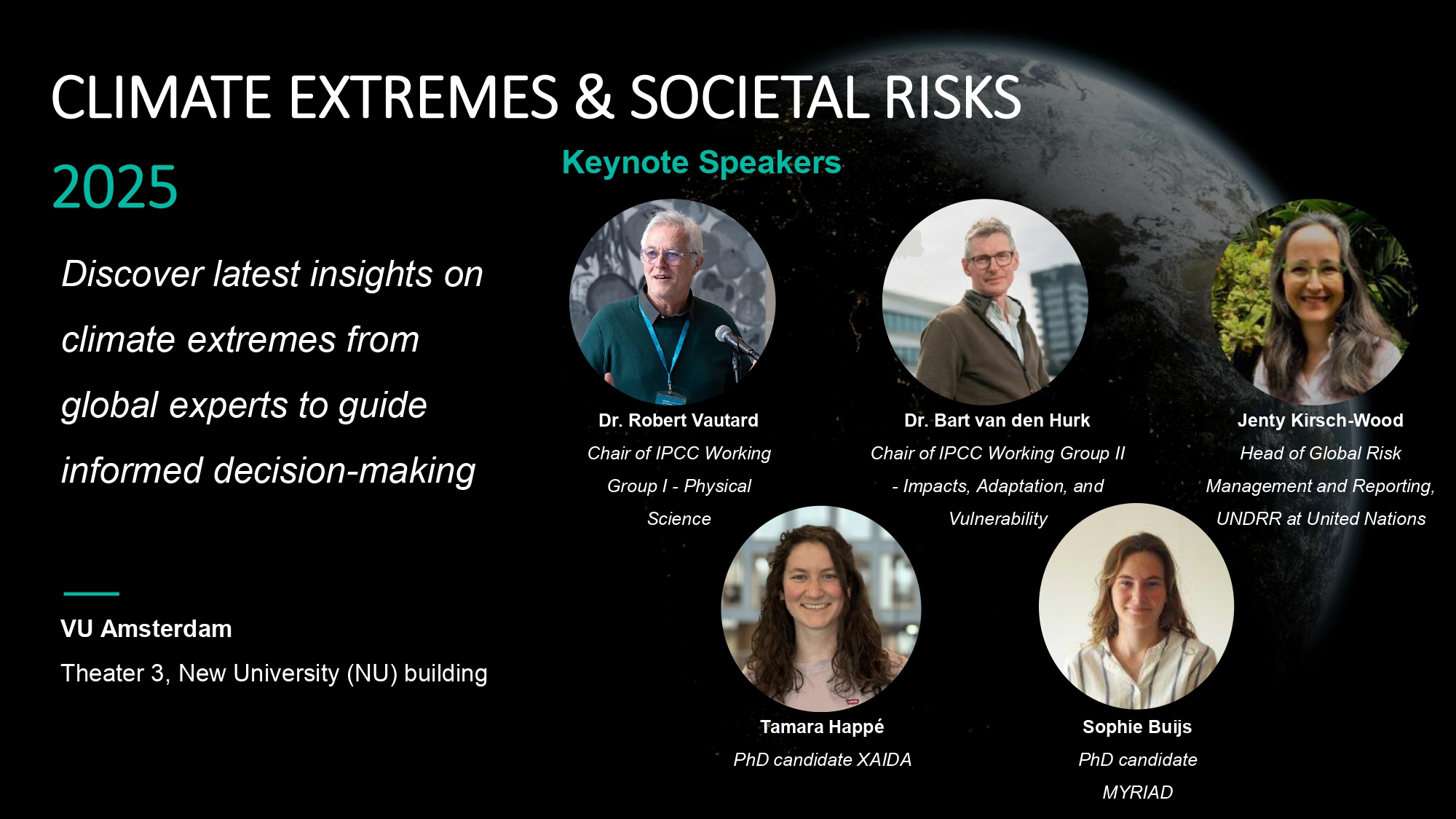
Climate Extremes & Societal Risks
For this final event together with the MYRIAD project, XAIDA chose to focus on Climate Extremes & Societal Risks. This will take place at Vrije Universiteit Amsterdam on December 17th and 18th. A public event inviteing all partners and stakeholders will take place in the afternoon on December 17th.
Check out the lectures and details.

XAIDA Webinar #18
The 18th session of our webinar will occur on June 10th, 2025 at 10AM (10:00) CET. During this webinar Dr. Pradeebane Vaittinada Ayar will discuss his work on ‘Ensemble Random Forest for Tropical Cyclone Tracking’.
‘Even though tropical cyclones (TCs) are well documented during the intense part of their lifecycle until they start to evanesce, many physical and statistical properties governing them are not well captured by gridded reanalysis or simulated by Earth system models. Thus, the tracking of TCs remains a matter of interest for the investigation of observed and simulated tropical cyclones. Two types of cyclone tracking schemes are available. On the one hand, some trackers rely on physical and dynamical properties of the TCs and user-prescribed thresholds, which make them rigid. They need numerous variables that are not always available in the models.
On the other hand, trackers are leaning on deep learning, which, by nature, needs large amounts of data and computing power.’
Check out the details to attend and follow the discussion!

XAIDA Webinar #17
The 17th session of our webinar will occur on April 23rd, 2025 at 2PM (14:00) CET. During this webinar Dr. Simon Klein will discuss the current work he is developing whit his team at the Office for Climate Education (OCE) for adapting research topics covered by XAIDA teams into class activities, ready for use for middle school teachers around the globe.
Check out the details to attend, discuss and follow the discussion!

XAIDA Webinar #16
The 16th session of our webinar will occur on March 18th, 2025 at 2PM (14:00) CET. Oana-Iuliana Popescu (TU Dresden, TU Berlin) will talk about ‘Causal discovery with endogenous context variables’
Check out the details to attend, discuss and follow the discussion!

XAIDA Webinar #15
The 15th session of our webinar will occur on February 18th, 2025 at 2PM (14:00) CET. Aglaé Jézéquel (LMD-IPSL) will talk about ‘Broadening the scope of anthropogenic influence in extreme event attribution?’
Check out the details to attend, discuss and follow the discussion!

XAIDA Webinar #14
The 14th session of our webinar will occur on January 21st, 2025 at 2PM (14:00) CET. Svenja Seeber (ETH Zurich) will talk about ‘How extreme was the global heat in 2023/24?’
Check out the details to attend, discuss and follow the discussion!

XAIDA Webinar #13
The 13th session of our webinar will occur on January 7th, 2025 at 2PM (14:00) CET. Dominik Schumacher (ETH Zurich) will talk about ‘Storylines of heat and drought’
Check out the details to attend, discuss and follow the discussion!
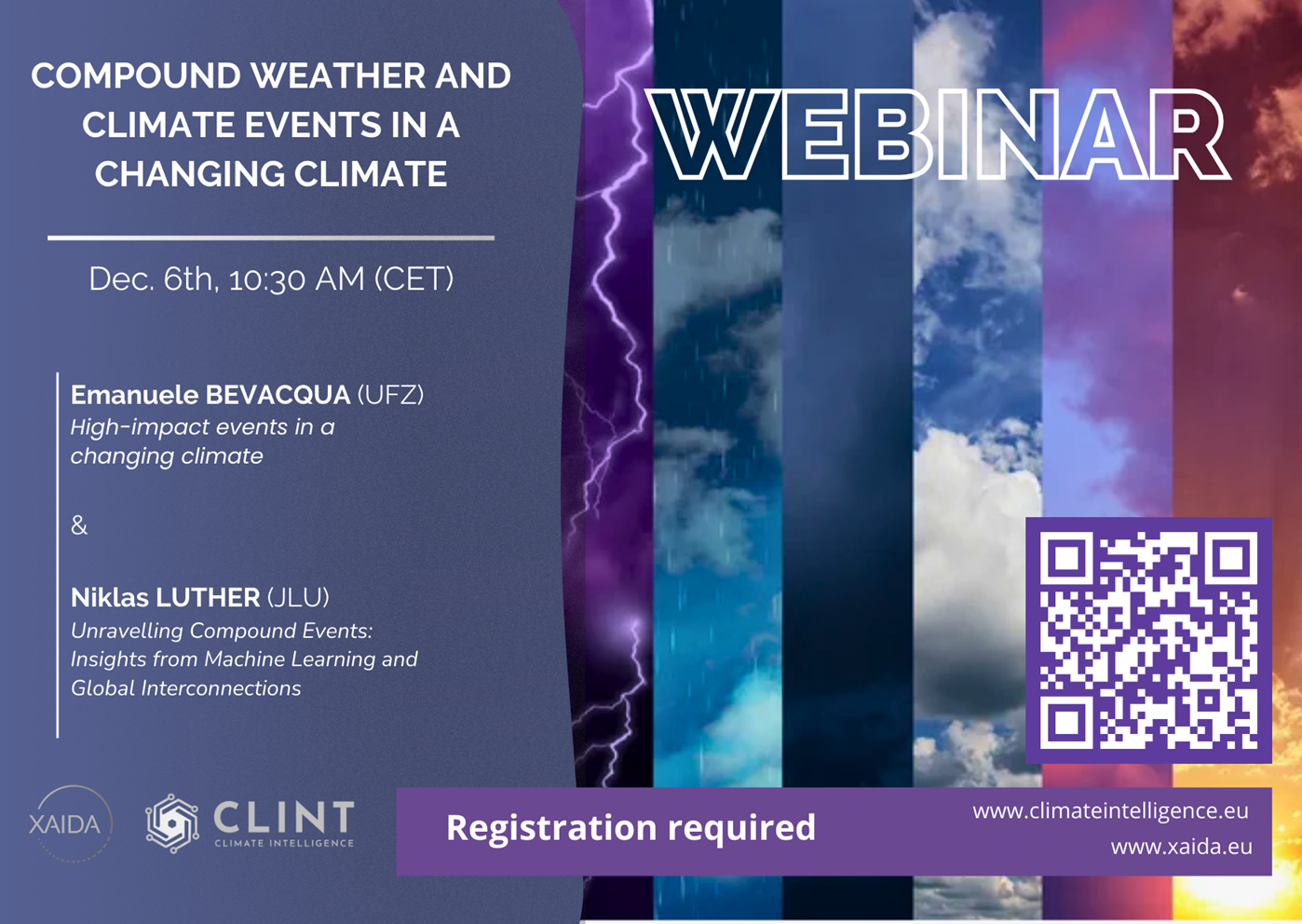
XAIDA Webinar #10
[NEW DATE] December 6th at 10:30 AM CET – The 10th session of our webinars will be held in partnership with the CLINT (Climate Intelligence) project. Emanuele Bevacqua (UFZ) and Niklas Luther (JLU) will do a presentation on compound weather and climate events in a changing climate.
Check out the details to attend, discuss and follow the discussion!

XAIDA Webinar #12
The 12th session of our webinar will occur on November 28th at 10:30 AM CET. Paula Gonzalez (IPSL) will present her work on ‘Forecasting yearly record probabilities from historical measurements’
Check out the details to attend, discuss and follow the discussion!

XAIDA Webinar #11
The 11th session of our webinar will occur on November 5th at 2 PM CET. Fiona Spuler (Univ. Reading) will do a presentation on ‘Identifying probabilistic weather regimes targeted to a local-scale impact variable based on a modified variational autoencoder architecture’.
Check out the details to attend, discuss and follow the discussion!
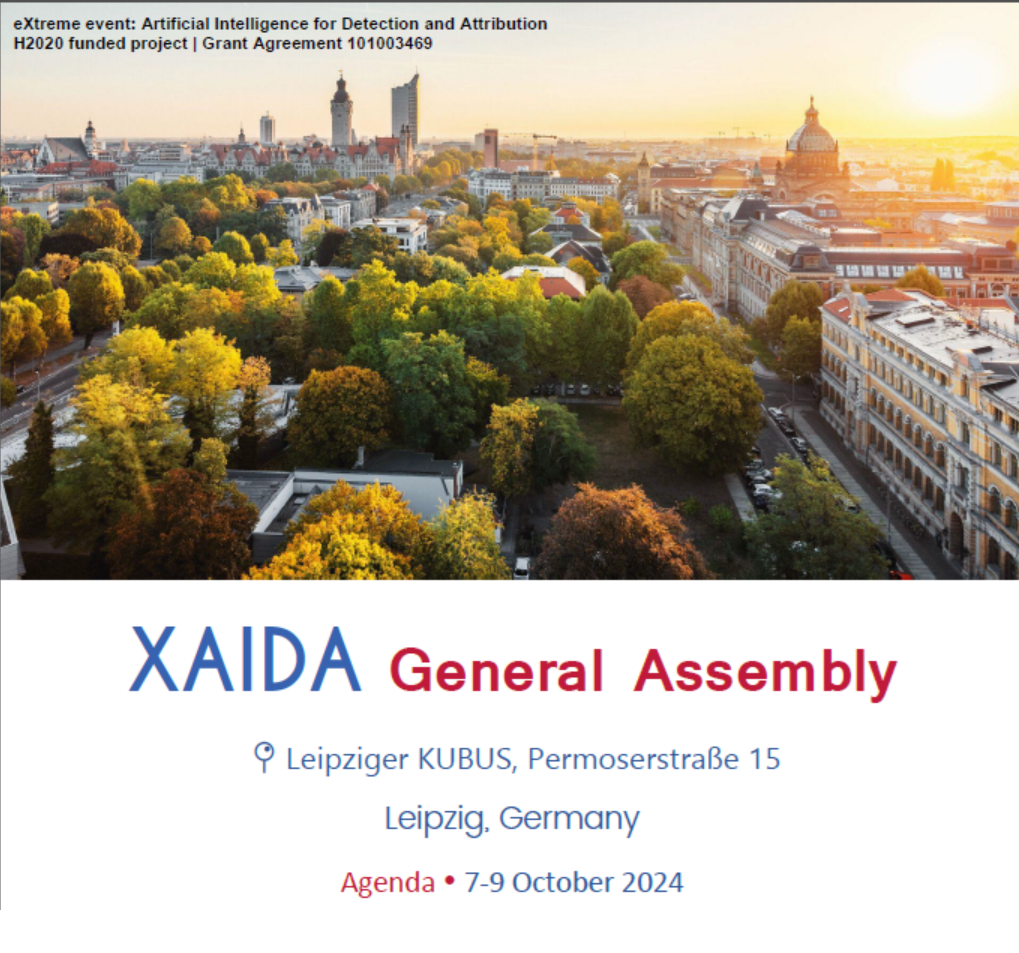
2024 Annual General Assembly
The 3rd Annual General Assembly of the XAIDA project is taking place in Leipzig, from October 7 to October 9. Focusing on Science and collaborations, this GA gathers 45 people at UFZ KUBUS centre.
Check out the lectures and details.

XAIDA Webinar #9
The 9th session of our webinar will occur on September 10th at 2 PM CET. Nathan Mankovich (UVEG) will do a presentation on the Dynamic Mode Decomposition with control (DMDc).
Check out the details to attend, discuss and follow the discussion!

XAIDA Webinar #8
The 8th session of our webinar will occur on July 3rd at 2 PM CET. Lucas Fery (LSCE-IPSL, CEA Saclay) will do a presentation on the detection and attribution of derechos in France.
Check out the details to attend, discuss and follow the discussion!
BRIEFS
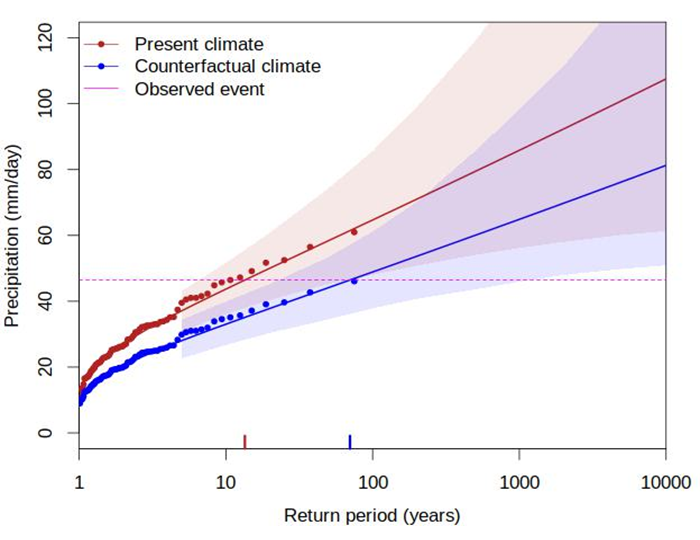
How can we attribute weather extremes to climate change?
With climate change we see an increase in extreme weather events around the globe; occurrences of floods, heatwaves, and droughts. Within XAIDA, we aim to determine to what extent human induced climate change has altered the probability of occurrence and/or intensity of an extreme weather event, also known as attribution science. Several institutions work on attribution science, using different but complementary methodological frameworks. In this brief we explain the three main approaches used within XAIDA: unconditional probabilistic analysis, circulation analogues, and the storyline approach.
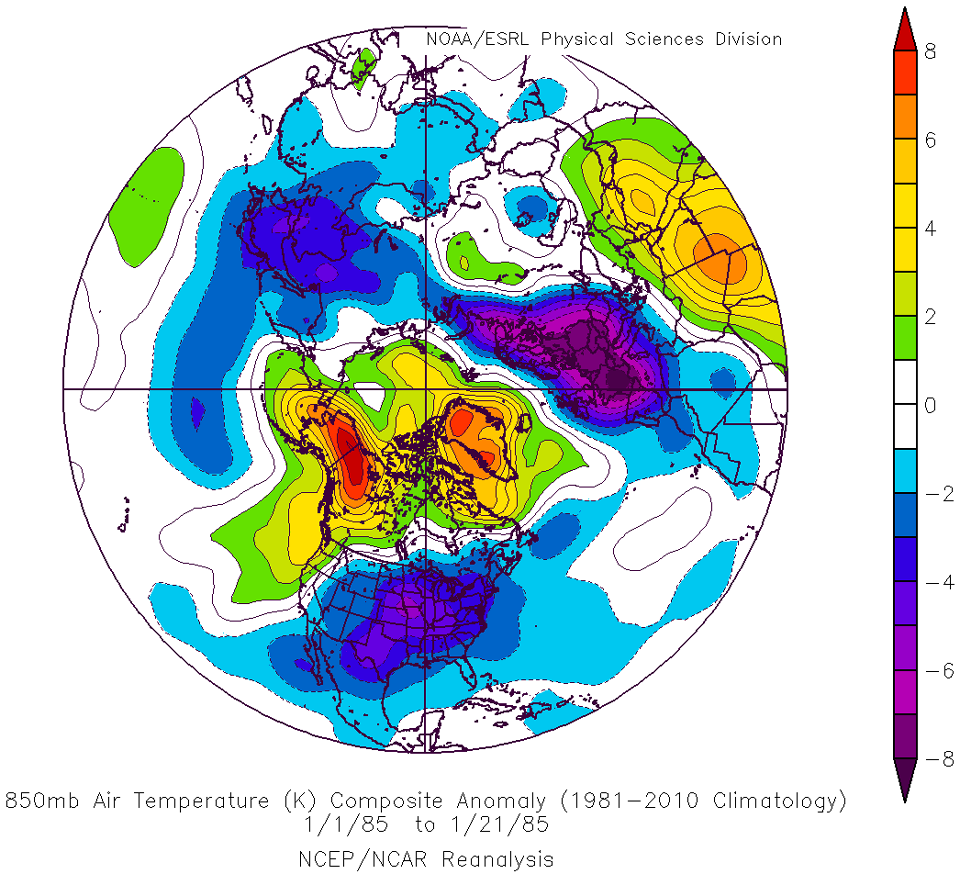
DESPITE GLOBAL WARMING, COLD SPELLS SUCH AS WITNESSED IN THE 1980’s IN WESTERN EUROPE ARE STILL POSSIBLE
Extreme cold spells are still possible today in Western Europe, even with current warming trends.
The atmospheric circulation patterns that drive extreme low temperatures, e.g. as in January 1985, remain possible in current winters.
Under such conditions we anticipate that with current regional warming trends, temperatures would only be about 1.4°C warmer than in 1985, with potential impacts on the electricity grid, and health.
As an example, a circulation-induced 1985-like cold spell in today’s climate would likely stand at around -9°C over France for minimum temperatures, which would still be amongst the 5-10 coldest cold spells observed in the past five decades.
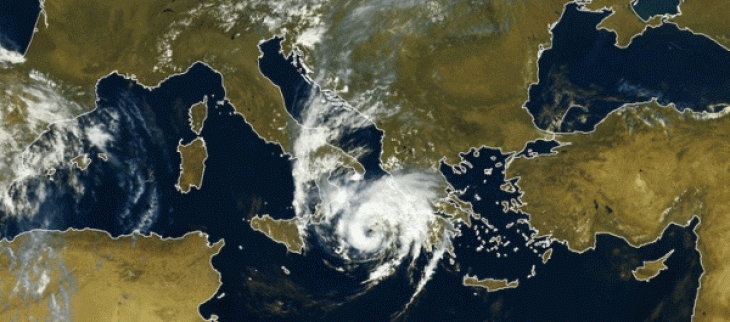
The « Medicanes » (Mediterranean Hurricanes) and climate change
Medicanes are Mediterranean cyclones whose characteristics resemble those of tropical cyclones. They are often associated with hurricane-force winds and heavy precipitation. With a frequency of 1-2 per year, it is a challenge to determine whether their frequency should increase or decrease in a warmer world. Their intensity is however projected to increase due to the warming projections for the Mediterranean sea, the main source of energy for medicanes.
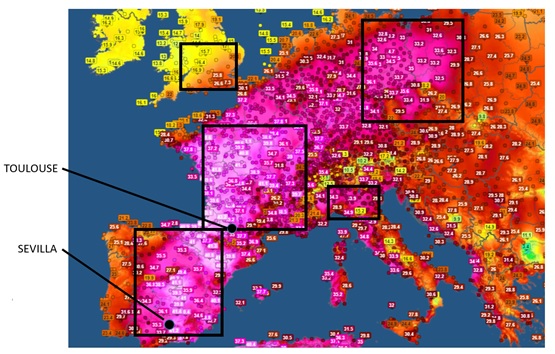
EARLY 2022 HEAT WAVES IN EUROPE AND CLIMATE CHANGE
The summer of 2022 was pounded by a series of heat waves in Europe. The first, an outstanding early heat wave, took place in mid-June 2022 across Europe, mostly hitting Spain, France, but also other parts of Europe. The early character of the heat, in a crucial season for agriculture and ecosystems, is likely to have induced specific impacts on health and agriculture, which will need to be assessed. During the XAIDA Summer School in Trieste, students have studied the relation of this heatwave to climate change.
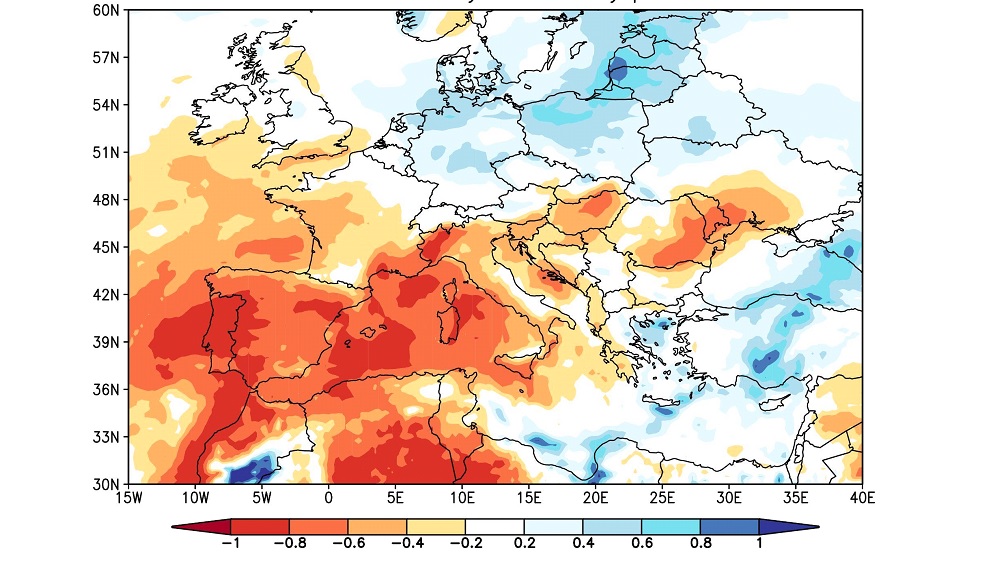
WINTER DROUGHT IN THE MEDITERRANEAN: WHAT DO WE KNOW?
Since October 2021 and until mid march 2022, a severe drought has gripped the Western Mediterranean area, putting harvests from rain-fed crops potentially at risk. Winter is a crucial season for water resources in this region. What is the current state of our knowledge?
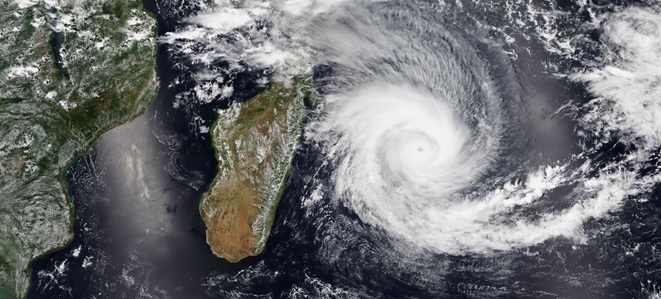
CYCLONES AND CLIMATE CHANGE: WHAT DO WE KNOW? THE CASE OF CYCLONE BATSIRAI
Tropical Cyclone Batsirai has left Madagascar after killing dozens, displacing tens of thousands and devastating the island’s agriculture, already suffering from drought hard hitting a vulnerable population, Unicef said, adding that many of the victims are probably children, who make up more than 50% of Madagascar’s population. Batsirai hit eastern Madagascar with a Category 3 strength on the evening of Saturday 5 february 2022, bringing heavy rains and winds of 165 km/h. The city of Mananjary in the east of the country “has been completely destroyed”, one of its residents said.
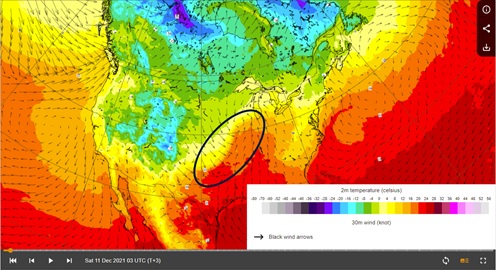
TORNADOES AND CLIMATE CHANGE: WHAT WE KNOW
Devastating tornadoes in central U.S.A. took place on 10 and 11 December 2021, with widespread destruction of homes, infrastructures, and large parts of some midwest cities. Over a hundred people lost their lives and many more were injured. Given that we already live in a world of 1.2°C global warming, such extreme events immediately raise the question whether and to what extent climate change altered the likelihood and intensity of these devastating storms. Here we briefly summarize the current scientific knowledge on such links.
